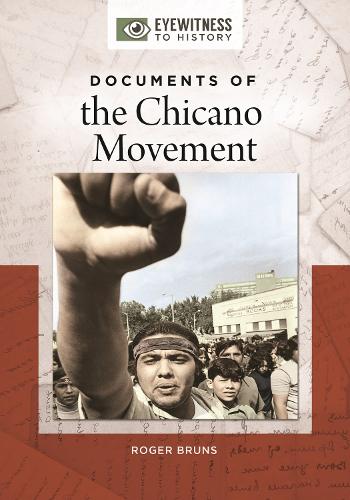
Documents of the Chicano Movement
(Hardback)
Publishing Details
Documents of the Chicano Movement
By (Author) Roger Bruns
Bloomsbury Publishing PLC
ABC-CLIO
5th January 2018
United States
Classifications
Tertiary Education
Non Fiction
Social discrimination and social justice
Civics and citizenship
305.86872073
Physical Properties
Hardback
226
Width 178mm, Height 254mm
680g
Description
This book provides original source documentsfrom firsthand accounts to media responses to legislationregarding the Chicano movement of the 1960s through 1970s. Readers will understand the key events, individuals, and developments of La Causa: Chicanos uniting to free themselves from exploitation. The 1960s was a time of the burgeoning black Civil Rights movement, when society and politics were divided over the war in Vietnam and public violence became "normal" in the form of police response to protests and assassinations of leaders. It was also a time that witnessed the beginning of a movement to secure justice and rights on behalf of Mexican-Americans and other Latinos. It was the Chicano movement. Documents of the Chicano Movement: Eyewitness to History presents some 50 primary historical documents, each prefaced by a succinct introductory essay. Because the Chicano movement comprised disparate groups and leaders from across the nation, the book will be divided into several sections that acknowledge these separate but connected efforts, each headed by its own introduction. Through its detailed coverage of approximately two decades, the book highlights key topics that include the fight of farm workers to establish a union; the so-called "Land-Grant Struggle" to reclaim areas of the Southwest ceded in the Treaty of Guadalupe Hildago; the establishment in New Mexico of the Crusade for Justice, an organization that promoted a nationalistic agenda; the growth of the urban Chicano student movement and its drive for educational reform; the Chicano Antiwar Moratorium protests; and the eventual rise of Chicano political power with the birth of the La Raza Unida Party. The breadth of primary documents include materials from archives, manuscript repositories, newspapers, government documents, public speeches and addresses, first-person accounts from individuals who participated directly in the Chicano movement, legal decisions, pamphlets, and essays. The documents not only tell a vivid, engaging story but also provide students and researchers with valuable resources for use in other works.
Author Bio
Roger Bruns is a historian and former deputy executive director of the National Historical Publications and Records Commission at the National Archives in Washington, DC.
